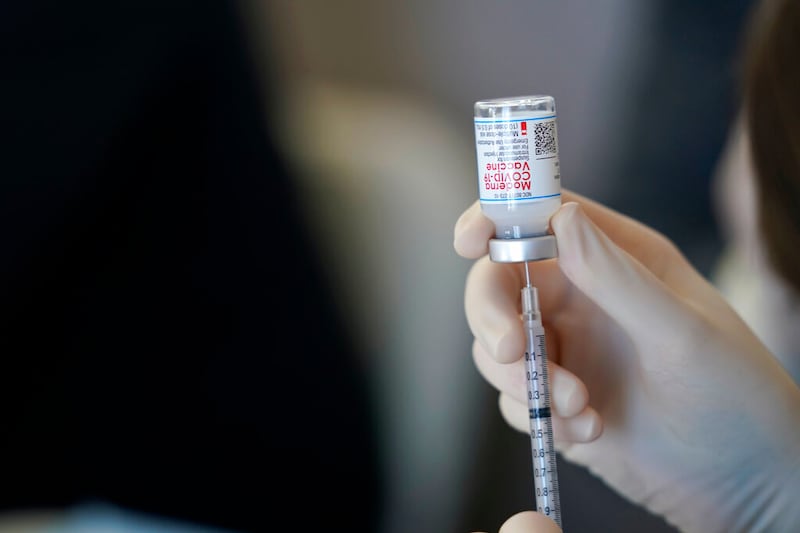An omicron-specific COVID-19 vaccine did not offer better protection against the omicron variant compared to Moderna’s currently, highly-effective booster shot, according to a new study from researchers at the National Institutes of Health.
- The study — which was posted on a preprint server ahead of peer review — analyzed the effects of Moderna’s omicron-specific vaccine on a small group of monkeys.
What they found: “The nonhuman primate (NHP) model has ... been largely predictive for what has been observed in humans in terms of protective efficacy,” the authors wrote, according to Ars Technica.
- The researchers found boosting monkeys with either the omicron-specific vaccine or the normal booster shot led to the same increase in antibodies.
- “And, when the vaccinated and boosted monkeys were challenged with an omicron infection, both boosters protected the primates equally well from disease in their lower airways,” according to Ars Technica.
- Scientists expect this finding to hold up in human trials.
Why this matters: This early result should be a sign of what’s to come when Moderna starts to test its omicron-specific vaccine on humans.
The bigger picture: A recent study from Duke University found that the Moderna COVID-19 booster shot created omicron-fighting antibodies that lasted for about six months before decreasing, a sign that the immunity to omicron may only last for half of a year.
- “The drop in antibodies for the booster is very similar to the drop in antibodies to the delta variant that was noted six months after the second dose of the vaccine,” said co-corresponding author and researcher David Montefiori, according to WRAL.


